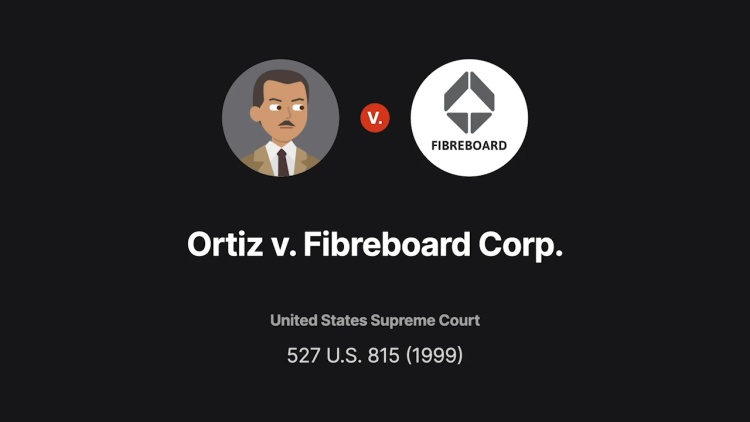Ortiz v. Fibreboard Corp.
United States Supreme Court
527 U.S. 815, 119 S. Ct. 2295, 144 L. Ed. 2D 715 (1999)
- Written by Salina Kennedy, JD
Facts
Fibreboard Corporation (Fibreboard) (defendant) manufactured products containing asbestos. After asbestos was found to be harmful, Fibreboard faced an overwhelming number of personal-injury claims and entered into a global settlement agreement. Under the agreement, Fibreboard’s insurers would contribute $1.53 billion to a trust fund for future claims. Fibreboard, which had a net worth of $235 million, would contribute $10 million to the fund. Separate inventory settlement agreements resolved claims still pending against Fibreboard, and a trilateral settlement agreement bound all entities that might seek indemnification from Fibreboard for tort claims arising from the distribution of Fibreboard products. The global settlement agreement was to be implemented by filing a limited-fund class action seeking certification of a mandatory class including all potential claimants who did not have lawsuits against Fibreboard. Damages were limited to $500,000 per claim, with no punitive damages and no prejudgment interest. The parties agreed that if the court did not approve the settlement, Fibreboard’s insurers would pay $2 billion for claims defense. The district court certified the class action, and the court of appeals affirmed.
Rule of Law
Issue
Holding and Reasoning (Souter, J.)
Dissent (Breyer, J.)
What to do next…
Here's why 907,000 law students have relied on our case briefs:
- Written by law professors and practitioners, not other law students. 47,100 briefs, keyed to 996 casebooks. Top-notch customer support.
- The right amount of information, includes the facts, issues, rule of law, holding and reasoning, and any concurrences and dissents.
- Access in your classes, works on your mobile and tablet. Massive library of related video lessons and high quality multiple-choice questions.
- Easy to use, uniform format for every case brief. Written in plain English, not in legalese. Our briefs summarize and simplify; they don’t just repeat the court’s language.





